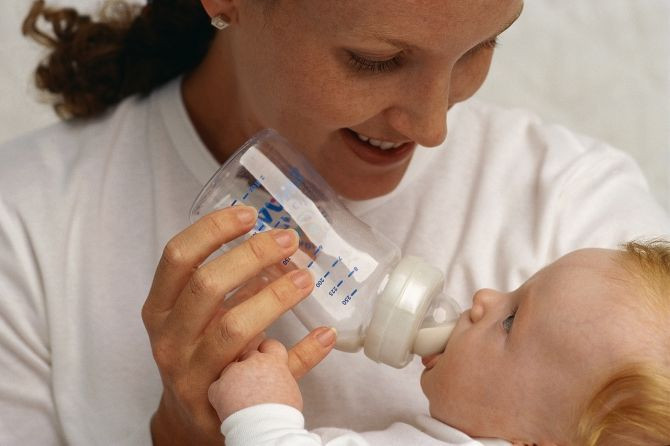Research Suggests Waiting When Giving Your Infant Solid Food. When Is The Right Time?

We have recently reported that in animal models, babies who start eating foods with the same calorie content, but with fats replaced by carbohydrates had problems for the rest of their life with weight control even if their diet was restricted. New research from the Centers for Disease Control and Prevention has just been published indicating that the same is true in people.
The researchers found that women who used baby formula were twice as likely (54 percent) to start their kids on solid food before their babies became four months old compared to women who only breastfed (28 percent). Many mother in the study indicated that their doctors said that there was no problem starting their children on solid food earlier and others said that they thought it was time to switch or that they felt that their babies would have a more restful sleep through the night.
Researchers from the CDC analyzed a monthly record that mothers kept from 1,334 infants and surveyed when and why they began to transition their infants from formula or breast mink to solid foods. The study also found that mothers who transitioned their babies to solid food earlier were younger, single, have less education or are in the federal Women, Infants and Children (WIC) program.
The American Academy of Pediatrics suggests that parents wait until six months of age to make the transition to solid food. Benefits of breastfeeding include a reduced risk of respiratory infections, diarrhea and sudden infant death syndrome (SIDS). The study did indicate that the introduction of solid foods may increase the risk of diseases such as diabetes, obesity and celiac disease.
Some interesting statistics from the study include 8 percent of mothers introduced solid food as early as one month or earlier, 89 percent of mothers said they introduced solids early because they believed the baby was old enough to begin eating them, 67 percent said the baby showed interest in solid food, 71 percent said the baby seemed hungrier than usual, 56 percent said the healthcare provider recommended solids, and 8 percent said the baby had a medical condition that may have been helped by eating solids.
The real question is how does a parent gauge when is a good time to start feeding their child solid food?
The study published in the journal Pediatrics can be found here.



























